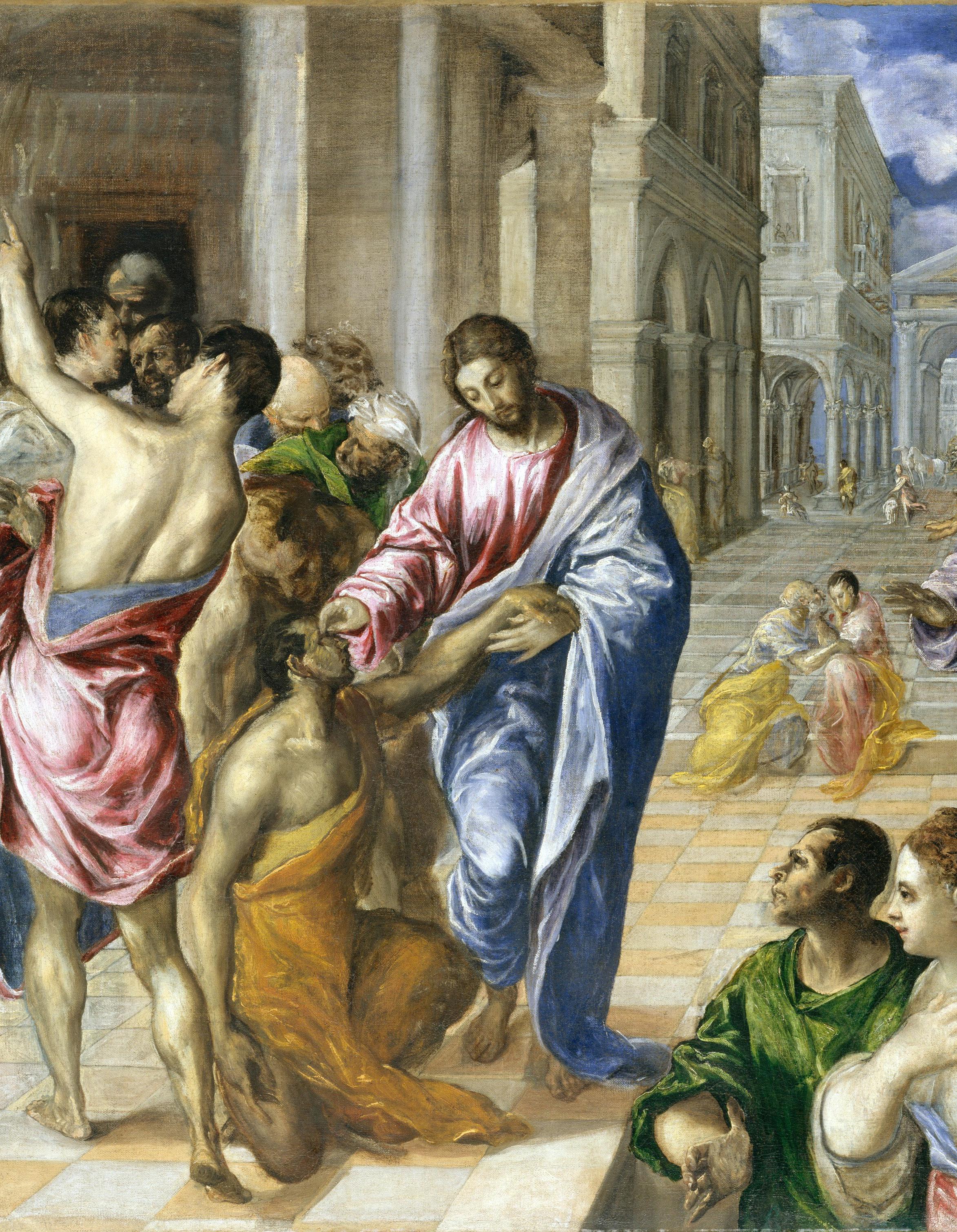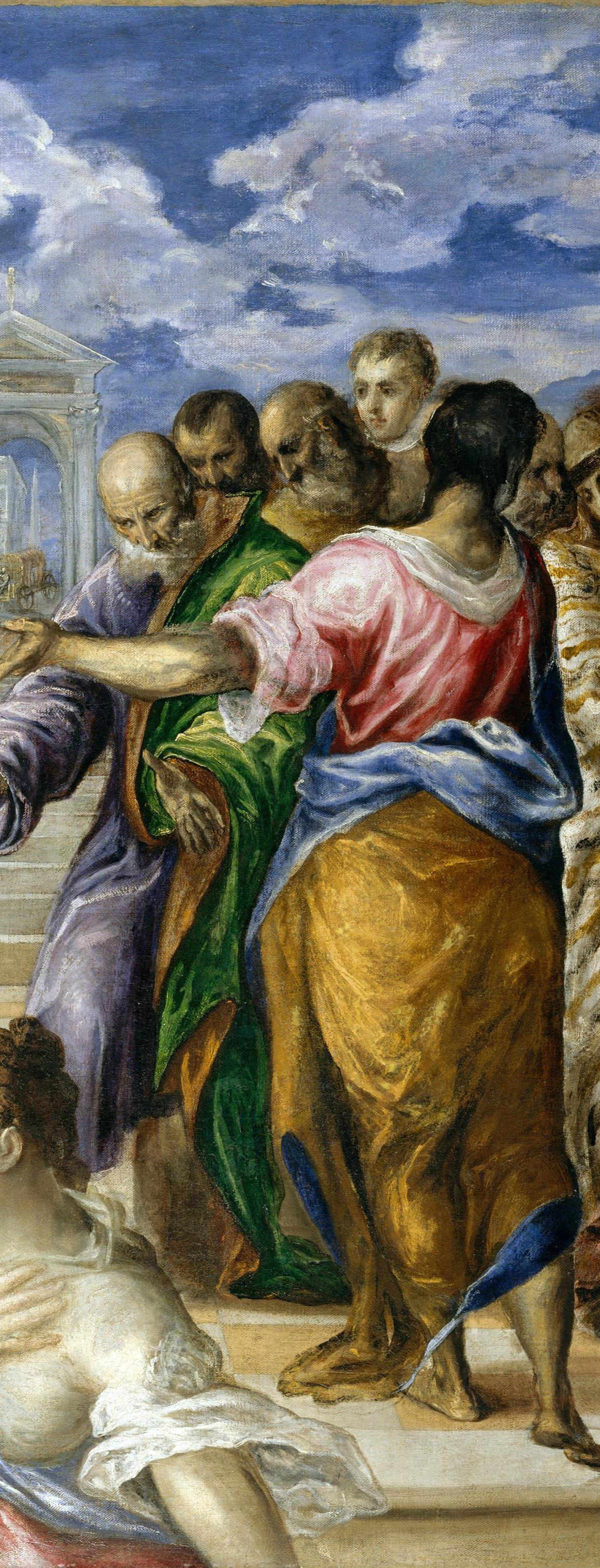
4 minute read
Trust as Action
Trust as Action
by Jim Fo rest
Advertisement
“In God we Trust; all others pay cash,” read a sign over the cash register of a delicatessen I often frequented in Manhattan’s Lower East Side half a century ago. It was a humorous way for a shopkeeper to communicate his determination to keep his small business from being buried in a cemetery of IOUs.
Like that merchant, most of us are cautious when it comes to money. We are well advised not to be gullible about the claims of advertisers, the guarantees of salesmen, and the crowd-pleasing assurances of politicians. We have learned, often the hard way, to be careful about whom we trust, including those who court our applause and demand our obedience. “Put not your trust in princes, in a son of man, in whom there is no help,” the 146th Psalm reminds us. These cautionary verses are so important that they are read or sung every Sunday in Orthodox churches: “When his breath departs he returns to his earth; on that very day his plans perish.”
Yet even though prudent watchfulness serves many areas of life, trust is at the core of our social existence. Every morning, parents entrust their young children to the care of others. We trust our doctors and nurses to do their best in keeping us healthy. We trust the local supermarket not to sell us salmonella-laden eggs.
Yet there is always an undercurrent of caution. When we get right down to it, it’s hard to trust ourselves. Even what we have witnessed with our own eyes and ears and have vivid memories of is not 100% trustworthy. Recollections are notoriously unreliable. Innocent people have been executed due to the faulty memories of sincere and honest witnesses. The Gospels remind us that the Apostles sometimes had a hard time trusting Jesus. His assurances that He would be raised from the dead fell on incredulous ears. One Sunday of the Paschal season is given over to recalling a saint who personifies skepticism. The Apostle Thomas was unwilling to believe his friends’ testimony that Jesus had returned to life until he had not only seen the risen Lord with his own eyes but put his fingers into the wounds left by the nails and the spear.
For the skeptic, belief in such things is a bridge too far; for the hard-core skeptic, the only things that can be trusted are the things we can weigh, measure, count, and photograph.
Ultimately faith, another word for trust, is a life-defining decision. It’s not just an idea or an opinion—a cognitive state—but rather something we do. While it’s natural for us to be skeptical, it’s also natural to be pulled with tidal force toward Christian belief as summarized in the Creed. As Orthodox Christians, one of the main ways we respond to the tension of doubt challenging faith is by participating in the liturgical life of the Church. Here we are strengthened not only by our own deepest longings but by the faith of the community that surrounds us as well as the ever-present but unseen cloud of witnesses represented by the icons that encircle us.
Taking a leap of trust in the Gospels can be a hard struggle. Unless you’ve grown up deeply rooted in Christianity and slipped through adolescence and early adulthood without passing through hurricanes of doubt, following Christ is equivalent to walking on water.

The Miracle of Christ Healing the Blind
El Greco (oil on canvas, 1570)
A Christian is someone who has decided to trust the Gospels—to trust this particular unique and demanding narrative. It’s a decision to try to shape our lives around the words and actions and parables of Jesus, and thus to meditate on those sayings of His as if the truth and wisdom they contain were a matter of life and death—because, in fact, they are.
In the Orthodox liturgy there are two processions, one of the Book and one of the bread and wine. In the first, the Book is held aloft and the entire congregation bows toward it. What Book? It’s not the Bible or even the New Testament. It’s a volume containing only the four Gospels. In it we hear Christ’s guiding voice. The procession culminates in placing the book on the altar table.
In the second procession we bow again, this time toward the bread and wine which, once blessed and consecrated, bring Christ’s Body and Blood into our own body and blood. We trust in the living presence of Christ and its efficacy to make us whole and save us.

The Miracle of Christ Healing the Blind - detail
El Greco oill on canvas, 1570)
Belief is an action of trust, and so is communion: Christ trusting in us and we in Him. We choose in trust to unite ourselves with Him who is love itself, Him who is pure mercy, with Him who equips us to become people of love and mercy, Him who trusts us to reveal the Gospel to others not by argument but by witness. This makes trust the very tissue that holds the Church together, and maintaining that trust is the challenge we face as Christians every day of our lives. Like the father of the boy with the evil spirit in the Gospel of Mark, we struggle with unbelief even as we believe: “I believe; help my unbelief!”
Jim Forest has authored numerous books, including Praying with Icons, The Ladder of the Beatitudes, Confession: Doorway to Forgiveness, Saint Nicholas and the Nine Gold Coins, and a forthcoming memoir, Writing Straight with Crooked Lines. He is the international secretary of the Orthodox Peace Fellowship. Nancy Forest, his wife, is a literary translator. Their writings are collected on their website, jimandnancyforest.com. They are parishioners at Saint Nicholas of Myra Orthodox Church in Amsterdam, the Netherlands.

